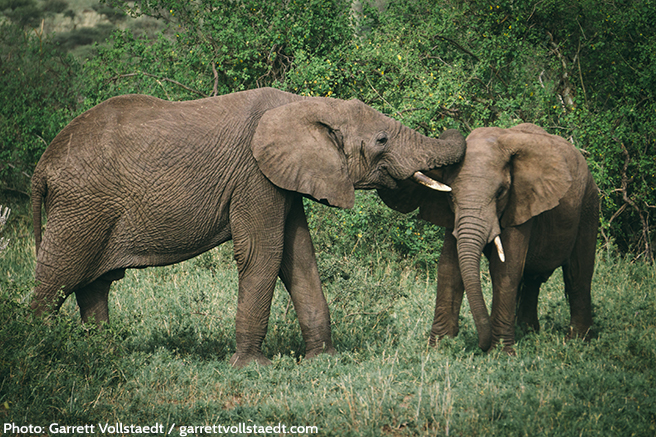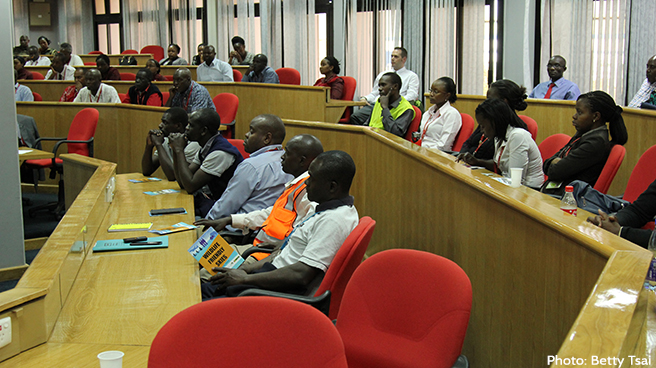The Frontline Warriors of Wildlife Trafficking

Dick worked his way through the luggage with methodical and focused movements and quickly identified what he was looking for—a smuggled illegal piece of ivory. His speed and agility are the sure-fire skills that will help tremendously in combatting the illegal wildlife trade that is ravishing the wildlife populations of Africa.
However, Dick needs back up.
Dick is one of several ivory detection dogs deployed at the Jomo Kenyatta International Airport in Kenya. The canine detection unit Dick is attached to is one critical spoke in the wheel of detecting illegal wildlife products. His back up, though, is the other frontline warriors in the fight against illegal wildlife trafficking—the airline and airport staff. Their facilitation and management of the thousands of globe-trotting passengers that flood through the transit points and hubs that they work in makes them integral to any initiatives aimed at combatting poaching and diminishing the illegal wildlife trade coming out of Africa.
Securing buy-in and building capacity
As a result of globalization and the ease of long distance travel, wildlife traffickers are exploiting airlines to smuggle the illicit wildlife products. It is with this in mind that Freeland and their partners—AWF, IFAW and the US Government—under the Africa Regional Response to Endangered Species Trafficking (ARREST) program recently hosted the first ever Wildlife Friendly Skies training workshop in Africa.
AWF’s Dr. Philip Muruthi presented at the workshop reiterated the fundamental role played by Kenya Wildlife Service’s canine detection unit, adding that building the capacity of the staff and employees of commercial airlines is essential. “We can’t leave it to canines and the rangers, we also need to step up to the plate and get more involved. If not, how do we explain ourselves to future generations who may not get to experience what we have in relation to our wildlife heritage?”

The workshop, held at the Kenya Airways Pride Center in Nairobi, brought together 200 staff from Kenya Airways, Kenya Customs, Kenya Wildlife Service and members of the International Airlines Transport Association. The goal was for participants to improve their skills and knowledge in how to better detect and report illegal trade in wildlife and their products.
The training is part of a concerted effort to halt the rise in illegal wildlife products leaving Africa on commercial airlines and through ports across the region, and comes at time when Kenya has been identified as a major hub for illegal wildlife trafficking. Recently, the East African region has seen a significant rise in poaching of elephants, rhinos, lions, pangolins and other endangered species.
Reports by Freeland have shown that a significant amount of the wildlife traded around the world travels on commercial flights and so proper training of the employees of commercial airlines is a priority. The training will increase their awareness of how the airlines are being used by wildlife traffickers, develop their skills in identifying possible wildlife crime and criminals and build their capacity on what actions to take when reporting suspicious individuals and activity.
Kenya Airways CEO Mbuvi Ngunze said during the training that, as one of Africa’s leading carriers, the airline is at the forefront of the fight against wildlife trade and trafficking. He challenged his staff and other Kenyans to be guardians of this bountiful natural heritage, and to participate and own the processes that are established.
The global illegal trade in wildlife and other natural products is decimating the Africa’s wildlife at an alarming rate. Unchecked, these crimes against nature not only destroy the continent's bio-diversity, but they also have adverse effects on human health and survival. It will take the will and commitment of all of those operating within the value chain of wildlife crime working together to stop and prevent this trade from flourishing any further.